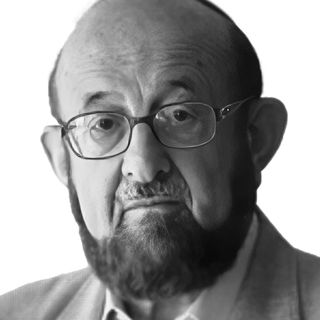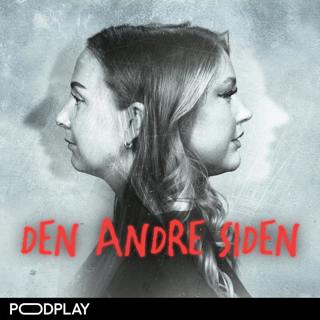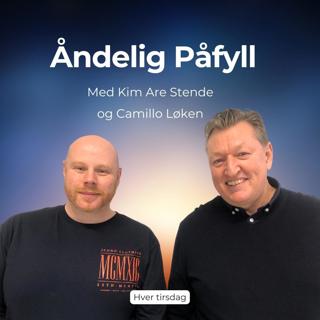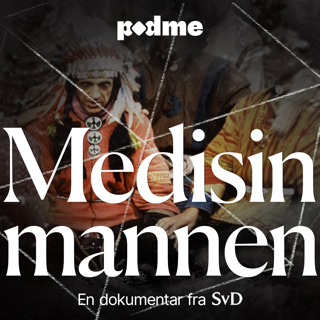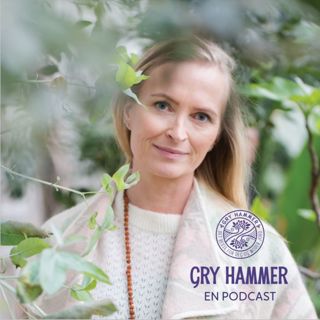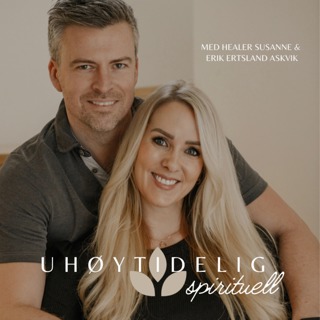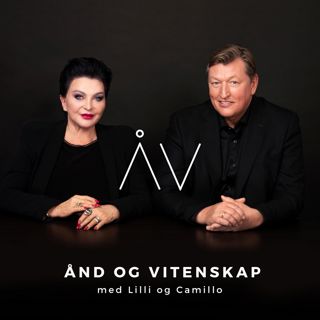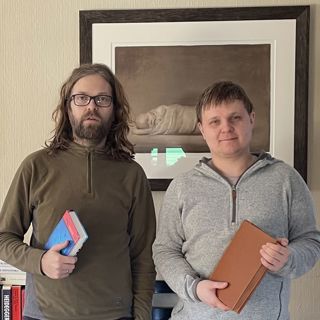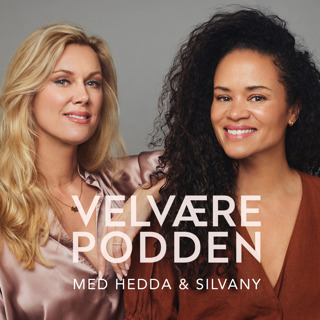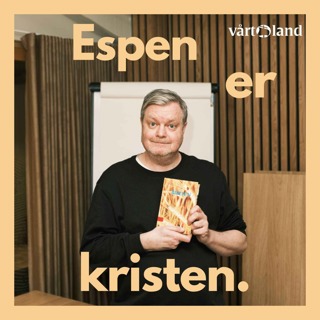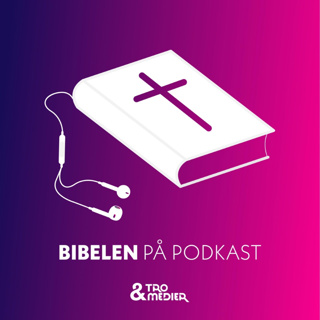![Bethany S. Mandel: Jews without Community [Peoplehood 3/4]](https://cdn.podme.com/podcast-images/D79089FBEF78B78B9B1A2A8AFD27F6A1_small.jpg)
Bethany S. Mandel: Jews without Community [Peoplehood 3/4]
In this episode of the 18Forty Podcast, we sit down with conservative journalist and cultural commentator, Bethany S. Mandel, to talk about the entrances and exits of her life, reconstructing Jewish identity, and creating a Jewish home outside of the Jewish community. Bethany has written for the New York Times and Washington Post, and now serves as an opinion columnist for the Forward, a contributor to the Washington Examiner's Beyond the Beltway blog, and is an editor at Richocet.com. She is a sharp writer and speaker about Jewish communal life, particularly about conversion, and has written about the impact of the Freundel affair on her life. -Can one be a member of the Jewish community while living outside the institutions that constitute the community?-Can you love Judaism, but not Jews?-How does one deal with disappointment in Judaism, particularly at the hands of a Jewish leader?-How can we build reconciliation and create a more empathetic community?Tune in to hear Bethany discuss the relationship between Jews and the Jewish community, and why her Jewish community is her home. For more, visit https://18forty.org/peoplehood/#mandelBecome a supporter of this podcast: https://www.spreaker.com/podcast/18forty-podcast--4344730/support.
22 Sep 202043min
![Laura E. Adkins: Is There Room for All Opinions? [Peoplehood 2/4]](https://cdn.podme.com/podcast-images/D79089FBEF78B78B9B1A2A8AFD27F6A1_small.jpg)
Laura E. Adkins: Is There Room for All Opinions? [Peoplehood 2/4]
In this episode of the 18Forty Podcast, we sit down with Laura E. Adkins, the JTA’s opinion editor and an adjunct professor of journalism at Stern College for Women, to talk about how she stays grounded while engaging with so many disparate viewpoints. Many people live in a perpetual bubble, never allowing themselves to step too far from the lifestyle they feel is comfortable. They may only ever engage with straw man versions of others’ opinions, and therefore may never be exposed to a diversity of ideas and people. As a seasoned journalist - currently the opinion editor of the internationally-syndicated Jewish Telegraphic Agency - Laura is no stranger to subversive opinions and pluralistic attitudes. She is also a baalas teshuva, having forged her Jewish identity by the force of her own will. -How has she been able to stay grounded and centered in her identity as a person while engaging with so many different people and opinions?-How has her experience as a baalas teshuva contributed to this?-What was her journey as a baalas teshuva like?-How do groundedness and a plurality of opinions and information play a role in modern kiruv (Jewish outreach)?-And how should they play a role?Tune in to hear Laura reflect on her journey as a baalas teshuva, the state of kiruv, and the art of remaining true to one’s identity. For more, visit https://18Forty.org/peoplehood/#adkinsBecome a supporter of this podcast: https://www.spreaker.com/podcast/18forty-podcast--4344730/support.
15 Sep 202046min
![Rav Aaron Lopiansky: What Tribes do you Contain Inside? [Peoplehood 1/4]](https://cdn.podme.com/podcast-images/D79089FBEF78B78B9B1A2A8AFD27F6A1_small.jpg)
Rav Aaron Lopiansky: What Tribes do you Contain Inside? [Peoplehood 1/4]
In this episode of the 18Forty Podcast, we sit down with Rav Aaron Lopiansky, Rosh HaYeshiva of the Yeshiva of Greater Washington, to talk about the challenges facing American Orthodoxy, life-long education, and value education.Rav Lopiansky speaks the language of the particular; much of his insight is situated for those in the Yeshiva-oriented Jewish communities, but his thought is important for all. As he navigates his understanding of the many roles we all occupy, he promotes a loving acceptance of diversity within the community, with the goal of appreciation for the whole Jewish people. -How can one person love a whole nation?-How can the love for a nation be a textured love, an appreciation that runs deeper than ethnocentrism or love of the similar?-Can deep engagement with one’s own cultural experience engender a deeper appreciation for other cultures?-Or do the lines of difference between one’s culture and others demand demarcation?Tune in to hear Rav Lopiansky discuss differentiating education for all ages, the challenges facing the Jewish people in 2020, and his thoughtful commentary on Jewish life today. For more, visit https://18forty.org/peoplehood/#lopiansky.Become a supporter of this podcast: https://www.spreaker.com/podcast/18forty-podcast--4344730/support.
10 Sep 20201h 17min
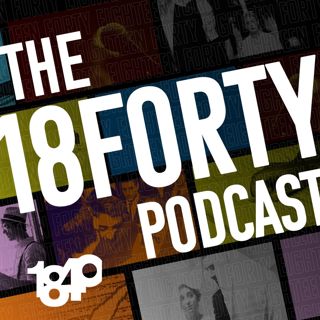
Reflections Four Months After Launch
18Forty launched in May 2020 and since then we’ve explored Talmud, OTD: Leaving Religion, Comedy, and Biblical Criticism. As we take a two-week break before exploring our next topic, we want to spend some time reflecting on what we’ve learned.Learn more at https://18forty.org/Become a supporter of this podcast: https://www.spreaker.com/podcast/18forty-podcast--4344730/support.
25 Aug 20201h

Gil Student: Where are the Lines?
In this episode of the 18Forty Podcast, David sits down with Gil Student, an infamous blogger who created Torah Musings, to talk about the credibility of modern Biblical scholarship. Gil grew up learning the Bible from the perspective of Biblical criticism, but its conclusions never jived with him. Though many are quick to note places where the Torah uses inconsistent characterizations as evidence that it has been written by multiple authors, he has always noted the implicit assumptions that these lines of thinking entail. Through his years developing and evolving opinions, Gil has experienced firsthand how subjectively we humans think, and he is loath to call any conclusion objectively true.-Are the conclusions put forth by Bible critics indisputable, or at least strongly convincing?-Do traditional commentaries have anything to say that’s of value?-How flexible can we be before crossing the lines denoted by Orthodox Judaism?-And how should we strike a balance between adhering to traditional curriculums and accounting for modern scholarship when teaching the next generations?Tune in to hear Gil discuss the different views on the Bible, from those of traditional commentators to secular Bible scholars. For more, visit https://18Forty.org/bible#student.Become a supporter of this podcast: https://www.spreaker.com/podcast/18forty-podcast--4344730/support.
17 Aug 202053min

Biblical Criticism Conclusion
As we confront the questions that Biblical criticism has presented, we must ask ourselves how we can keep that transcendent, atemporal view of the Torah. Perhaps considering the seemingly temporal idiosyncrasies of the Torah can actually strengthen our appreciation of its timelessness. For more, visit https://18Forty.org/bible.Become a supporter of this podcast: https://www.spreaker.com/podcast/18forty-podcast--4344730/support.
17 Aug 20208min

Joshua Berman: What Should We Believe?
In this episode of the 18Forty Podcast, David sits down with Joshua Berman, a professor of Bible at Bar-Ilan University, to talk about the relationship between Orthodox Judaism and Biblical criticism. Many Orthodox educators avoid dealing with Biblical criticism, leaving their students feeling that they’ve been duped. Religious Bible critics are a minority in the field, giving some the impression that the questions raised cannot be adequately addressed. Though Joshua grew up with a strong internally-driven sense of faith, he too has been struck by some of these questions when his colleagues have pointed them out.-Are there strong questions to be asked on the Orthodox view of the Bible?-Are there scholars who feel they have answers that can adequately quell the doubts raised by these questions?-Is this approach falsifiable?-And is it merely apologetics, or is this scholarship just as legitimate, if not more, than the opposing scholarship?Tune in to hear Joshua reflect on his journey as a Jew and an academic, as well as the state of Biblical scholarship. For more, visit https://18Forty.org/bible#berman.Become a supporter of this podcast: https://www.spreaker.com/podcast/18forty-podcast--4344730/support.
3 Aug 20201h 1min

Biblical Criticism Intro
David explains how, despite his initial apprehensiveness towards the topic, he has come to appreciate the different approaches to Biblical criticism offered by this month’s three guests: Joshua Berman, Gil Student, and Sara Susswein Tesler. For more, visit https://18Forty.org/bible.Become a supporter of this podcast: https://www.spreaker.com/podcast/18forty-podcast--4344730/support.
26 Jul 202013min
